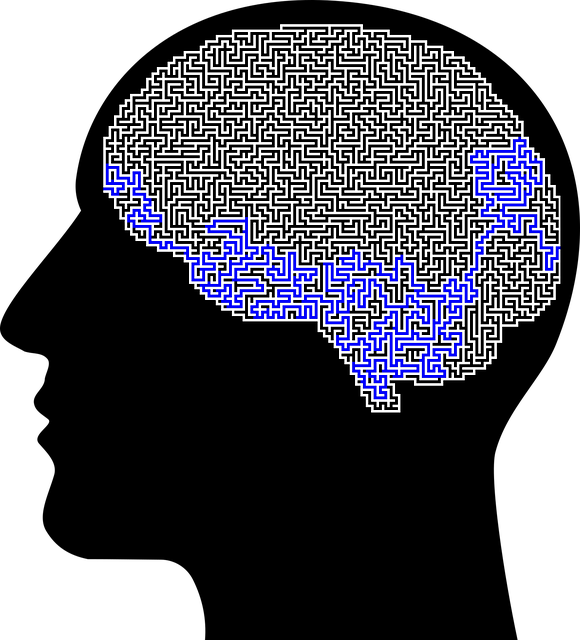Loss and grief significantly impact family dynamics, but therapy for family counseling offers a safe space for processing feelings collectively. Through tailored techniques, counselors help families navigate grief stages, improve communication, strengthen bonds, and manage stress. For children, this therapy addresses emotional challenges, anxiety, and aggression caused by bereavement. Advanced methods like CBT and EMDR address complex dynamics and trauma-related distress, fostering resilience and personal growth. In a nurturing environment, therapy for family counseling guides families towards healing, stronger connections, and mental wellness post-loss.
“Loss, grief, and bereavement counseling are vital components of healing for families navigating life’s most challenging moments. This comprehensive guide explores the intricate process of understanding and supporting grieving families. We delve into the unique journey of a family coping with loss, highlighting the transformative power of counseling. From recognizing common challenges to examining diverse therapy approaches, this article offers insights on creating a supportive environment fostering healing and growth after bereavement. Discover effective strategies for family counseling through therapy, tailored to meet individual needs.”
- Understanding Loss, Grief, and Bereavement: A Family's Journey
- The Role of Counseling in Supporting Grieving Families
- Common Challenges Faced by Families During Bereavement
- Different Therapy Approaches for Effective Family Counseling
- Creating a Supportive Environment for Healing and Growth
Understanding Loss, Grief, and Bereavement: A Family's Journey

Loss, grief, and bereavement are profound experiences that can profoundly impact a family’s dynamics and well-being. Understanding these complex emotions is the first step in healing. Family counseling offers a safe space for loved ones to navigate their feelings collectively, providing them with valuable tools to cope with their loss. Through therapy, families can explore the stages of grief, process their unique experiences, and develop healthy coping mechanisms tailored to their specific circumstances.
This supportive environment encourages open communication, fostering a deeper understanding of one another’s emotions. The process involves recognizing that each family member may experience grief differently and at their own pace. By participating in therapy sessions, families can enhance their problem-solving skills, improve stress management (a key focus in workshops offered by organizations dedicated to mental health education), and even strengthen their bonds as they learn together. Self-esteem improvement is another benefit, as counseling helps individuals acknowledge their resilience and ability to overcome challenging periods.
The Role of Counseling in Supporting Grieving Families

Loss, grief, and bereavement can profoundly impact families, disrupting their emotional equilibrium and mental wellness. This is where therapy for family counseling steps in as a vital support system. By facilitating open communication, family counselors create a safe space for members to express their emotions, understand one another’s experiences, and navigate the complex journey of healing.
Through specialized techniques tailored to grief management, these professionals help families process their losses, improve emotional regulation, and enhance their overall emotional intelligence. This supportive environment allows each family member to grieve in their unique way while fostering strength, resilience, and a renewed sense of connection within the family unit.
Common Challenges Faced by Families During Bereavement

Families navigating bereavement often encounter a multitude of challenges that can be both emotionally taxing and logistically complex. The loss of a loved one disrupts established routines, dynamics, and support systems, leaving many families struggling to cope with sudden changes in their lives. Children, in particular, may exhibit increased anxiety, aggression, or withdrawal, requiring therapy for family counseling to help them process their grief and adjust.
One significant hurdle is the lack of effective communication and conflict resolution techniques within the family unit. Grief can intensify underlying issues and trigger heated arguments, hindering the collective healing process. Mental health professionals play a crucial role in facilitating these conversations and teaching families constructive ways to manage disagreements and emotional distress. Additionally, risk management planning for mental health professionals becomes essential to ensure they can adequately support families while safeguarding their own well-being, especially when addressing complex cases or advocating for mental health policy analysis and advocacy.
Different Therapy Approaches for Effective Family Counseling

In addressing loss, grief, and bereavement within family dynamics, a multifaceted approach to therapy for family counseling becomes essential. One popular method is Cognitive Behavioral Therapy (CBT), which focuses on identifying and changing negative thought patterns that can hinder coping mechanisms. CBT empowers families to navigate their emotions by reframing perspectives, fostering healthier communication channels, and developing effective conflict resolution techniques.
Another powerful strategy involves Eye Movement Desensitization and Reprocessing (EMDR), particularly beneficial for those grappling with trauma or intense emotional distress related to loss. EMDR helps individuals process traumatic memories, reducing their impact over time. This therapy for family counseling encourages families to provide crisis intervention guidance, fostering resilience as they work together to heal from profound bereavement. By combining these therapeutic methods, mental health professionals can offer tailored support, enhancing Mental Health Awareness and enabling families to embrace a path of healing and growth.
Creating a Supportive Environment for Healing and Growth

In a supportive environment, loss, grief, and bereavement counseling can facilitate profound healing and personal growth. Family counseling sessions designed to tackle these sensitive topics should be safe spaces where individuals feel understood, non-judgmentally accepted, and encouraged to share their feelings openly. Skilled therapists employ techniques that foster emotional expression, promote healthy coping mechanisms, and navigate the complex phases of grief, ensuring each member of the family receives tailored support.
The role of mental wellness coaching programs cannot be overstated in this context. These programs not only enhance the therapeutic process but also empower individuals to cultivate positive thinking and resilience. Through risk assessment for mental health professionals, therapists can tailor their approaches effectively, addressing specific needs without exacerbating vulnerabilities. By combining therapy with family counseling, these supportive environments enable families to navigate loss together, fostering collective healing and strengthening bonds.
Loss, grief, and bereavement counseling play a pivotal role in helping families navigate their emotional journey. By understanding these complex emotions, therapists can facilitate healing through tailored therapy approaches. Creating a safe, supportive environment is essential for families to process their loss, find solace, and foster growth. This article has explored the various facets of family counseling, highlighting its significance in managing bereavement. Embracing professional guidance ensures that families receive the necessary support to heal and thrive during challenging times. Effective therapy for family counseling can be a game-changer, offering much-needed comfort and strength.














